Settlement vs. Trial: What’s The Difference?
Many types of accidents – such as car accidents, medical malpractice, and slip and falls – never make it to trial and settle out of court. In fact, most personal injury cases settle before reaching a trial. However, sometimes a trial is necessary to achieve fair results for a client.
As the complaining party, should a settlement offer be made to you, your attorney will provide you with legal counsel about the fairness of that offer, but ultimately it will be your decision as to whether to accept the settlement or take the case to trial.
What is a Settlement?
A settlement is an agreement between parties in a case outside of court. In a personal injury case, the agreement typically includes compensation for the injured party paid by the at-fault party’s insurance company. In exchange for that compensation, the injured party will release all legal claims against the injured party, usually via a written document signed by the parties.
Settlements are usually achieved after extensive negotiations – offers and counter-offers – with the at-fault party, the insurance carrier and/or their attorney. Thus, it is important to have someone to represent you who has your best interests in mind, understands the true value of your case, and understands how to negotiate to maximize the settlement value.
Advantages and Disadvantages of a Settlement
There are several reasons you may want to settle out of court but there are also reasons you may not. Here are some advantages and disadvantages of a settlement:
Advantages of settlement include:
A settlement is typically quicker and less stressful than a trial.
There is a certainty in knowing how much you will be getting since each party controls the outcome, as opposed to putting it in the hands of twelve strangers - a jury.
It may be possible for your attorney to use settlement negotiations to reduce your outstanding medical bills or other liens related to the injuries suffered in the accident.
Attorney fees and other costs are typically reduced if a trial is avoided.
Disadvantages of settlement include:
Settlement offers are typically reflective of a compromise - meaning that they are less, sometimes significantly less, than what you could receive at trial.
No vindication. As part of a settlement, the at-fault party typically does not admit any wrongdoing and receives no financial punishment. The resolution is strictly compensation of a contested claim usually paid by their insurance company. Also, some settlements are required by the defendant to be confidential, meaning you cannot disclose the amount recovered.
What is a Trial?
Should you/your attorney be unable to procure a reasonable settlement offer, a jury trial will likely be the ultimate outcome of your claim. At trial, each party presents its arguments and evidence via witness testimony and documentation. As the injured party bringing the case, you must provide all elements required by law:
That the at-fault party owed you a duty of due care;
That the at-fault party breached that duty; and
That you suffered damages as a result of that breach;
Once your case has been presented, the at-fault party and his/her attorneys will have an opportunity to present their own witnesses to defend against the claim. At the conclusion of the testimony and evidence, the jury will decide who is at fault, and the amount of monetary compensation that should be awarded, if any.
A trial could last a few hours to a few weeks. However, even short trials need extraordinary preparations by the attorneys and the parties involved.
Pros and Cons of Going To Court
There are benefits to taking your personal injury lawsuit to court. Below are the pros and cons of going to court:
The pros of taking your case to trial are:
While not the norm, there is a chance for a home run award from a jury that far exceeds what would likely be offered by way of a settlement.
Meaningful closure and justice for the injured party with a finding by the jury that the at-fault party was in the wrong and caused your injuries.
Trials are typically an open forum with an open public record.
The cons of taking your case to trial are:
Trials are lengthy and time-consuming. Even after a positive outcome, there could be an appeal which will take multiple years to resolve without you receiving any recovery.
A trial is expensive. It may involve expenses such as filing fees and hiring witnesses which will come out of your recovery above the fee for your attorney.
Most importantly, there is always uncertainty about your success at trial. Jurors are notoriously unpredictable. While you could hit a home run, you could just as easily strike out and get less than any settlement offer made.
Settlement vs. Trial: What is the better option?
Which is the better option: settlement or trial? The answer to this question is determined on a case-by-case basis. Every case is different and there is no one-size-fits-all solution.
One thing is certain, for you to have the best chance of achieving a favorable outcome in your personal injury case, you should partner with a trusted attorney in South Carolina who is prepared for both scenarios.
Trial or settlement, the personal injury attorneys at HHP Law Group will do everything to advance your case to hopefully obtain the best possible outcome. They have extensive experience in helping clients in South Carolina get the compensation they deserve.
Call 803-400-8277 or contact us online to schedule a free case evaluation today.




